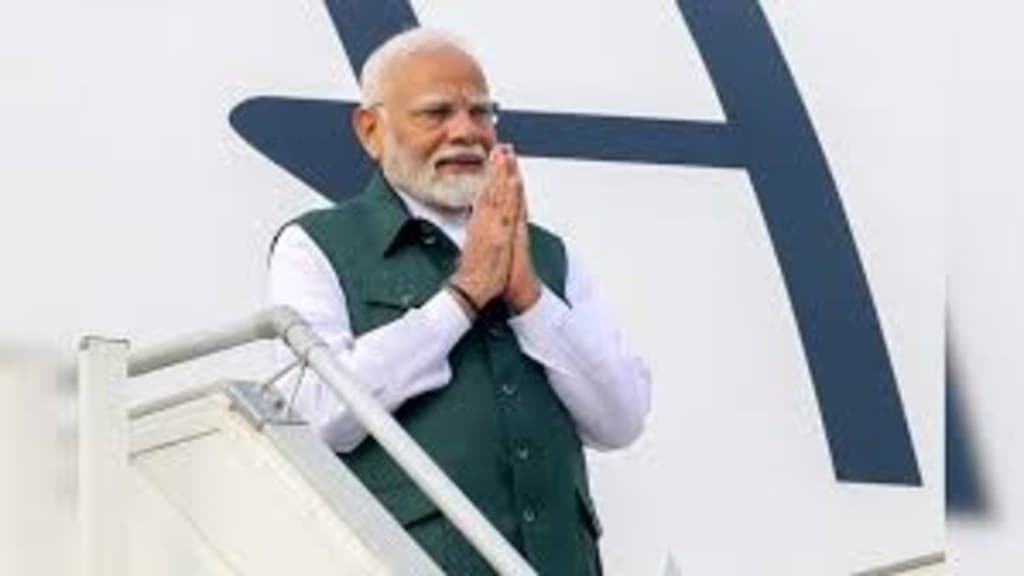In the midst of growing unrest across the Middle East, Prime Minister Narendra Modi’s impending visit to Kuwait stands as a significant opportunity for both countries to recalibrate their partnership and tackle pressing regional challenges.
Although the exact dates have not been officially disclosed, sources indicate that PM Modi will be in Kuwait this weekend for a two-day visit, which comes at a time when stability in the region is more crucial than ever. The visit is expected to foster closer cooperation in several critical areas, including energy, security, and trade, while also addressing regional tensions, notably the ongoing conflict in Gaza.
A Timely Visit Amid Escalating Regional Unrest
Kuwait’s neutral position on regional conflicts and its leadership role within the Gulf Cooperation Council (GCC) makes it an important partner for India in a region fraught with tension. The timing of PM Modi’s visit could not be more significant. With the Gaza conflict intensifying and broader instability affecting the Arabian Peninsula, India and Kuwait will likely engage in talks on how to manage these crises and contribute to peace-building efforts in the region. Kuwait’s role as the current GCC President makes it a pivotal player in shaping the region’s response to geopolitical challenges, and India’s strengthened relationship with the country could prove vital in these uncertain times.
Kuwait has historically maintained a balanced foreign policy, avoiding entanglements in the region’s more contentious issues, which has allowed it to act as a mediator in regional affairs. For India, engaging with Kuwait provides an opportunity to influence GCC policy and deepen cooperation with a country that has been a reliable partner in times of crisis. Moreover, Kuwait’s strong stance on humanitarian issues and its willingness to support regional peace initiatives will align with India’s broader strategic goals.
Economic Cooperation and Energy Security
One of the central topics of discussion during PM Modi’s visit will be energy security. Kuwait, as one of the world’s leading oil exporters, plays a key role in meeting India’s energy demands. Energy security remains a critical issue for India, which relies heavily on oil imports from the Gulf. Given the volatility in global energy markets and the growing push for alternative energy sources, discussions are expected to revolve around ensuring a stable energy supply and exploring new avenues for cooperation in the renewable energy sector.
The two countries are also expected to focus on economic collaboration beyond the energy sector. India and Kuwait have already established a growing trade relationship, and both sides are keen to further diversify their economic engagements. Kuwait’s sovereign wealth funds present an opportunity for investment in India’s infrastructure, technology, and renewable energy sectors. Similarly, India’s growing digital economy and start-up ecosystem offer a potential avenue for Kuwaiti investments, which could further bolster bilateral trade.
The visit also offers a chance to explore cooperation in other emerging sectors such as artificial intelligence, information technology, and space exploration, all of which are high on India’s national agenda. Strengthening bilateral trade and investment ties will not only benefit both nations but could also enhance their collective economic influence within the GCC and beyond.
Security and Defence Cooperation
Beyond economic matters, security cooperation is expected to be a central aspect of PM Modi’s visit. As India faces growing challenges in the Indian Ocean and the broader Middle East, strengthening defence and security ties with Kuwait has become increasingly important. The two countries have already seen an uptick in strategic engagements, including the recent visit of the Indian naval ship INS Visakhapatnam to Kuwait. During his visit, PM Modi will likely discuss enhancing maritime security cooperation and addressing regional security challenges such as terrorism and piracy, which are common threats for both nations.
India’s increasing military presence in the region, coupled with Kuwait’s strategic location in the Arabian Gulf, makes the two countries natural partners in ensuring the safety and security of vital international shipping lanes. Given Kuwait’s involvement in the Gulf’s security architecture, PM Modi’s visit is expected to set the stage for deeper collaboration on counterterrorism, intelligence-sharing, and military exchanges.
Cultural Ties and Expatriate Welfare
An important aspect of the visit will also involve the well-being of the large Indian expatriate community in Kuwait. Indians make up a significant portion of the Kuwaiti workforce, particularly in the construction, healthcare, and services sectors. The government of India has long been committed to ensuring the safety and rights of Indian workers abroad, and discussions will likely touch on the ongoing implementation of the Memorandum of Understanding (MoU) signed in 2022, which addresses the legal protections for Indian workers in Kuwait.
Humanitarian Support and Regional Solidarity
Kuwait’s humanitarian gestures toward India have further solidified the bond between the two nations. During the COVID-19 pandemic, Kuwait was one of the first countries to send significant medical aid to India, including oxygen cylinders and liquid medical oxygen, when India faced an overwhelming surge in cases. Kuwait’s role in providing vital medical supplies during the crisis highlighted the strength of their bilateral relationship and demonstrated that country’s commitment to supporting India in times of need.
Such acts of solidarity are an important aspect of the India-Kuwait partnership, reflecting shared values of humanitarianism and regional cooperation. PM Modi is likely to acknowledge this support during his visit and discuss ways in which the two countries can work together on future global challenges, from health crises to disaster relief efforts.
A Visit with Far-Reaching Implications
As the situation in the Middle East remains volatile, PM Modi’s visit to Kuwait offers both countries an opportunity to not only bolster their bilateral relationship but also work together toward a more stable and prosperous regional order.

